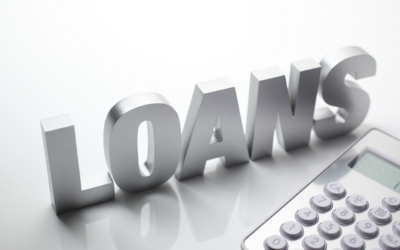Stated Income Commercial Loans are often considered to be a boon for commercial real estate investors. After the housing crash, the stated Income commercial loans were gone for a while. However, they were soon to make a comeback. And that’s good news! Is that good news for you? Depends on what your loan requirements are and on your loan qualifications.
For many investors, commercial stated Income loans are the best options available in the market. This blog is all you need to read to get a brief overview of commercial Stated Income loans. If you are a beginner, this blog will be very resourceful for you – so, let’s dive right into it.
If you are already well acquainted with the basic understanding of Stated Income Commercial Loans, use this table to navigate and jump to the sections you might not be very familiar with.
- What are Stated Income Commercial Loans?
- Types of Stated Income Commercial Loans
- Pros and Cons of Stated Income Commercial Loans
- General Qualifying Requirements for Commercial Stated Income Loans
- A brief history of Stated Income Commercial Loans – How it all started?
- Are Stated Income Commercial Loans still available?
- Are Stated Income Commercial Loans For you?
- Where to find Stated Income Commercial Loans?
- What are Stated Income Commercial Loans?
What are Stated Income Commercial Loans?
Stated Income Commercial Loans are loans that allow applicants to borrow using non-standard income documentation. Put simply, to qualify for a Stated Income loan, unlike other commercial real estate loan types – you don’t need to verify your income by submitting tax returns or paystubs.
You can simply demonstrate your cash inflows using bank statements or use other factors like home equity, assets to prove your loan repaying ability. These loans provide you the option of availing a loan without following the conventional loan qualifying standards.
Thus, these loans are extremely beneficial for people who do not have stable income flows, for example – self-employed borrowers. Since these loans are given based on bank statements or using other alternative ways of verifying income, they are also referred to as “No income verification loans” or “Bank Statement Loans” or “Alternative Document Loans” or “Alt Doc Loans.”
They’re different names referring to the same type of loan: Stated Income Commercial Loans, although each type has some very minor distinctive features.
Types of Commercial Stated Income Loans
The four main types of no-income verification loans are:
- SIVA – Stated Income, Verified Assets
- SISA – Stated Income, Stated Assets
- NIVA – No Income Verification, Verified Assets
- NINA – No Income Verification, No Asset Verification
A brief overview of these types of Stated Income Commercial Loans
1) SIVA – Stated Income, Verified Assets
A SIVA loan is where a commercial real estate lender accepts the income stated and verifies the assets you hold. These loans are most suitable for people who have a big chunk of not documented earnings.
The best example is people who earn big gratuities or tips, but their income documents are based on standard salaries, which do not account for such tips. The percentage of people taking up SIVA loans is lesser than the other types, but if it fits your bill of having verifiable assets – these are tailor-made for you.
2) SISA – Stated Income, Stated Assets
A SISA loan is where a commercial real estate lender accepts the income stated and the assets stated by you, without asking for any verification. For business owners who keep most of their assets under a business account, these loans can be beneficial.
Besides, with sole proprietors who do not document their compensation with paystubs or W2-Forms, these loans are again a great option. A typical use case scenario of SISA Loans is when you’re drawing significant income but don’t have any paper-based verification for the same or when you own assets that are difficult to document.
Applicants availing of SISA loans might be asked to submit their bank statements related to 12 to 15 months for proof of cash flows, but that’s about it. If you find a good Stated Income Commercial Lender, these loans might be extremely timely and useful.
3) NIVA – No Income Verification, Verified Assets
A NIVA Loan is where a commercial real estate lender does not verify the income stated but provides a loan based on the accumulated verifiable assets. In other words, lenders do not consider your income flows but provide you a loan solely based on the verifiable assets you can provide.
A typical use case scenario of NINA loans is for retired people who do not have a regular income but have accumulated assets or wealth.
4) NINA – No Income Verification, No Asset Verification
A NINA Loan is where a commercial real estate lender does verify neither income nor assets and provides a loan solely based on the borrower’s collateral. Of the 4 types, this is the one that requires the least number of documents.
Thus, for anyone who cannot document income or assets, a NINA loan is the best choice. For example, A person working for a foreign company, holding assets in a foreign land – this loan can be very useful.
Pros & Cons of Stated Income Commercial Loans
If you’re considering making a stated income commercial loan, understanding the major pros and cons of the same is very important. When you’re not able to qualify for any other kind of conventional loans out there and Stated Income Commercial Loans are your only option, looking at the pros and cons of Stated Income Commercial Loans might not be needed. However, if you have many options to choose from, a quick overview of the pros and cons will help you make better-informed decisions.
Pros of Stated Income Commercial Loans
#1 – Less documentation needed
The biggest advantage of Stated Income Commercial Loans is that these loans can be approved with fewer documents or unverifiable assets. In all the above mentioned various types of Stated Income Commercial Loans, fewer documents are asked for. This makes these loans the best go-to option for anyone who does not have a stable income flow or who, for any reason, cannot back up their income with verifiable documents.
#2 – Faster closing periods
Stated Income loans are generally provided by private money lenders, and they work at lightning speeds. The closing periods are very low, and a typical stated Income commercial loan would take anything from 3 days to 2 weeks closing time. This makes these loans a desirable option even for investors with verifiable documents – especially for savvy commercial realtors who need to make timely decisions. Thus, where time is of great essence with commercial real estate transactions, stated Income loan again is the best option.
#3 – The Last and Beat Resort when no other form of financing is available
When no other form of financing works, the Commercial stated Income loans are the best option available. There might be reasons other than the inability to verify assets or income that makes conventional lenders close their doors on you. These might include a poor credit score, loan defaulting history, etc. In such cases, your best resort is stated Income loans. If you can convince your lender about your loan repaying capacity, you can avail of the loan that you’re looking for with no or lesser number of questions asked.
#4 – No need to have great credit scores
One of the bigger reasons why many borrowers turn to stated income loans is that they do not require borrowers to have an amazing credit score. Although lenders might still prefer a good credit score, it is not a qualifying condition. Even when your credit scores are not great, you can apply for a stated income loan. The next steps of loan approval depend on other factors like loan amount, property value, bank statements, and how well you can demonstrate your loan repayment abilities.
Cons of Stated Income Commercial Loans
#1 – Larger down payments
Stated Income loans generally carry larger down payments. Thus, if you are in a financial state where you cannot afford the large down payment, these loans might not work out for you. However, you can always negotiate these terms with your private lender. If you can convince them of your loan repayment capacity, you can get a stated income loan with a minimal down payment.
#2 – Higher rates of interest
Since stated Income lenders do not have a lot to fall back upon, they generally require their borrowers to compensate it with higher interest rates than conventional loans. They’re not the highest interest in carrying loans in the market but are slightly higher than most other conventional loan types. Just like larger down payments, these are generally open for negotiations too. The key to getting a stated Income loan of your need depends on how well you can negotiate and how good a relationship you can establish with your private lender.
#3 – Bank Statements needed
Although stated Income loans do not require large documentation, it is not to say that these are free of any documentation. You still will be required to submit your bank statements to your stated Income lender. When you provide assets for collateral, your lender might still require you to appraise the value of assets to confirm the asset’s valuation or to check your equity stake in your asset holdings.
General Qualifying Requirements for Commercial Stated Income Loans
The qualifying requirements for commercial stated Income loans are not zero but minimal. Note that these qualifying requirements differ from one lender to lender, and you should choose your loan type and lender based on your unique loan needs.
- There will be a minimum of 10% down payment needed to avail of a stated income loan. This might get higher based on the loan amount value. A typical stated Income loan would require a down payment of 15% to 20% of the loan amount.
- You will be asked by your lender to provide bank statements relating to the past 12 to 15 months. These bank statements might be of a bank account under your name or of your business in a case where you are a small business owner.
- Stated Income lenders do not specifically require you to have greater credit scores, but it is better to have higher credit scores – as lower credit scores might often lead to higher down payments.
In case you have a bankruptcy or a foreclosure, the stated Income lenders might again require a larger down payment to compensate for the risk they’re taking.
A brief history of Stated Income Commercial Loans – How it all started?
Stated Income commercial loans started when self-employed borrowers and independent contractors who had good cash inflows started seeking out loans. The commercial real estate lenders quickly realized that there’s a huge number of such borrowers who have good cash flows but cannot back it up with verifiable documents.
Nonetheless, the lenders started lending out money to investors solely based on their “Stated Income” instead of the traditional “Verify all the income documents” approach. The relaxed standards of loan underwriting and the ever-increasing real estate prices made many borrowers think that properties’ value increases indefinitely, making them borrow more and buy more.
This trend increased, and there was a time when Stated Income Commercial Loans was so widespread that they almost became synonymous with Commercial Real estate loans. They became extremely popular in the years that led to the housing market crash in the year 2008.
After the housing market crash, the government had to intervene and set strict loan qualification standards – after which the Stated Income Commercial Loans saw their decline.
After the government regulations around Stated Income Commercial Loans tightened, these loans gradually decreased and soon disappeared entirely. After the Market Crash of 2008, there was hardly any lender who provided a stated Income loan across America’s states.
Not until very recently, the Stated Income Loans had become a thing of the past. However, they did make a gradual comeback! It is important to note that although Commercial Stated Income Loans are back, they are not how they used to be. Earlier, stated Income loans meant no-document loans. However, in today’s contexts – Stated Income Loans mean Fewer-Documents loans in a broad sense.
Question 1: Are Stated Income Commercial Loans still available?
Yes! Stated Income Commercial Loans are back. Although they aren’t as easily available as they used to be, Stated Income Commercial Loans are offered by many lenders. Lenders who offer portfolio lending options and are not governed by the qualified mortgage rules set up by government agencies like Fannie Mae or Freddie Mac provide these loans. Private Capital Investors is one of the most trusted private lenders in the country, providing various types of Stated Income Commercial Loans across the States.
Question 2: Are Stated Income Commercial Loans For you?
Stated Income commercial loans are for anyone who has trouble documenting their income flows or assets. In other words, if you are a self-employed professional or someone who does not have seasonal cash inflows – these loans are tailor-made for you. Additionally, if you are someone who has failed to meet the loan qualification standards of other types of loans, these loans might be your best option too.
As the saying goes – If other conventional loans turn their backs on you, Stated Income Commercial Loans are your best choice. At the outset, if you are a self-employed borrower, it might seem like a no-brainer for you to go ahead and avail of a stated income loan. However, it is still suggested that you consult a commercial real estate loan specialist to make a better-informed decision. Exploring all your options before you finalize on one is always a good idea.
Question 3: Where to find Stated Income Commercial Loans?
As there are many Stated Income Commercial Lenders, you can start researching your options based on the state you are in. Private money lenders who provide portfolio lending options are the best ones to get a stated income commercial loan. Every private lender will have a distinct set of qualification requirements based on their risk tolerance and value of the loan amount.
Working with a commercial real estate mortgage broker might be very helpful in exploring all of your options. As a general practice, most lenders require larger down payments, lower loan-to-value ratios, and higher credit scores. Note that this is just general practice, and you can always find a lender who will accustom to your lending needs.
The beauty of stated Income loans is that you can always talk and negotiate your way up to your loan terms, rates, and conditions. Most market lenders will require bank statements instead of tax returns to get a general idea about your cashflows. Additionally, lenders may also require one or two asset appraisals to confirm the property’s value or the equity stake you hold in the property.
Some More FAQs on Stated Income Loans answered.
Who are Stated Income Loans for? Stated Income loans can be applied for by anyone as there are no set restrictions on who can and cannot apply for a Stated Income loan. However, these loans are best suited for self-employed borrowers who cannot prove their stable and regular income flows, small business owners, and other borrowers who fail to qualify for stated income loans.
Question 1: Are Closing Costs higher for Stated income loans?
The closing costs depend on the individual lending terms and conditions as set by private lenders. In comparison to conventional loans, there is no huge difference when it comes to Stated Income Loans.
Question 2: How much do I have to put down for a stated income loan?
Generally, most stated income lenders would require borrowers to put down a minimum of 10% of the loan amount. These rates can be higher, too, and are often open to negotiations.
Question 3: Are the interest rates higher for Stated income loans?
As a general rule, yes – the interest rates for Stated income loans are much higher than conventional loans. This compensates for the risk taken by the stated income lenders.
Question 4: Do I have to submit tax returns to avail of stated income loans?
It is not a defining requirement to submit the tax returns to qualify or avail of a commercial stated income loan. However, if you can supply tax returns, it’s definitely a small advantage as lenders would have something more to fall back upon. However, it is important to note that you will be asked to submit your bank statements related to 12 to 15 months.
Question 5: Can I get a commercial stated Income loan if I have a foreclosure?
Yes, stated income lenders do provide loans for borrowers who have previous foreclosures. However, it must be noted that the down payment in such cases may be much higher than it would be for borrowers who do not have previous foreclosures.
How Does a Stated Income Loan Work at Private Capital Investors?
The borrower can reveal their income on an SISA loan application, eliminating the need for the lender to confirm it. The loans were designed to make applying easier for people with hard-to-prove earnings, including self-employed people and those who depend significantly on tips.
Stated Income Loan Procedure by Private Capital Investors
If you apply for a stated income loan, you can get a mortgage without showing proof of income. Borrowers say their earnings. Lenders take them at face value. They do not ask for tax returns, W-2s, or pay stubs as proof of income. Self-employed people and those with income confirmation problems could benefit. They could benefit from stated-income mortgage loans.
Why is a stated income loan required?
Initially, stated income mortgage loans were only available to independent contractors. Their income is more erratic and more challenging to establish than regular W-2s. This is because they are people running small enterprises or employed as independent contractors or freelancers in the gig economy. They find that the loan program is the best source of funding. Income verification is not needed, so borrowers who struggle to confirm their income may still be eligible for the loan.
The federal government does not guarantee a traditional mortgage. Another name for it is a doc mortgage. Instead, they are provided by mortgage companies and other financial organizations.
These include banks and credit unions. Unlike stated-income loans, conventional mortgages require documentation proving the borrower’s income.
Final Words
The best part about Commercial Stated Income Loans is that you can rely on them when other financing forms shut down on you. Besides, even when you have a poor credit score or suffer from bankruptcy or previous foreclosure, you can still avail of a stated income loan. Thus, these loans are aptly, often referred to as a boon to real estate lenders.
Whether you are self-employed, small business owner or someone who cannot qualify for conventional loan types – finding a reliable commercial stated income lender is of paramount importance.
Before you proceed with a loan application, ensure that you are familiar with all the loan terms and conditions and have all your loan-related questions answered by your private lender. Additionally, building a good relationship with your lender will go a long way in determining your overall real estate investment success.





